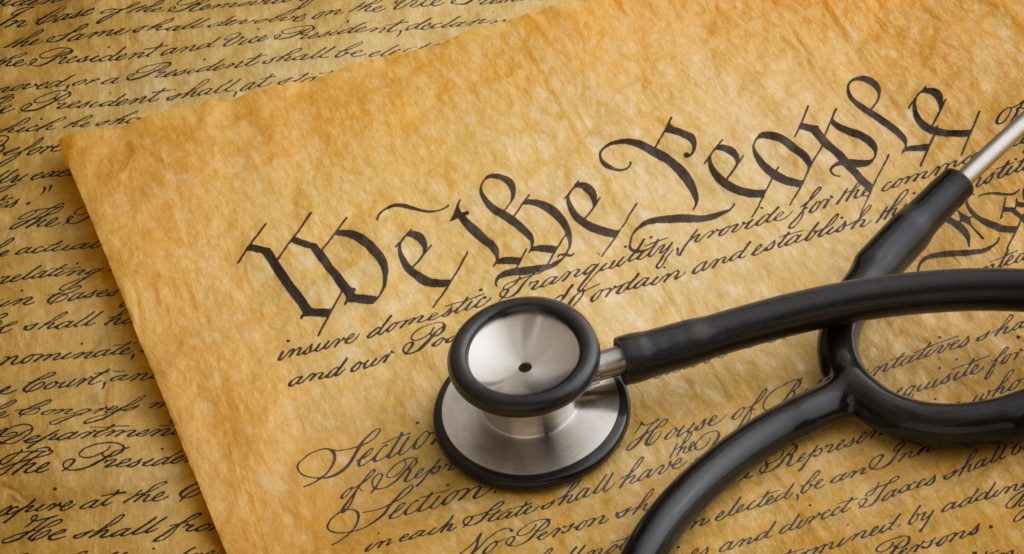Health policy update: what’s happened since the inauguration that impacts independent practices

Health policy update: what’s happened since the inauguration that impacts independent practices February 15, 2017
Over the past few weeks, major changes to health policy have been in progress under President Donald Trump and members of the 115th Congress. Independent physicians and primary care practices are like to be affected, and Elation has been keeping tabs on this new policy landscape.
We’ll examine the major health policy issues of the new administration and Congress to provide some clarity and guidance for physicians and their patients.
Affordable Care Act
One of the most visible change to healthcare thus far revolves around the plan to “repeal and replace” Obamacare. Though lawmakers are poised to carry out this plan through the budget reconciliation process, the timing and the actual replacement itself remains unclear.
Despite this, most primary care physicians, including those who voted for Trump, prefer to keep Obamacare. At the same time, President Trump recently indicated that a replacement for the Affordable Care Act might not come until next year.
Until implementation of this new plan is carried out, it’s difficult to nail down the impact on physicians. However, it’s likely the alternative will be more market-friendly and if Rep. Tom Price is confirmed as Health and Human Services Secretary, many believe this former physician will introduce physician-friendly reforms as well.
Value-Based Care
Even though Obamacare will likely undergo transformation, the transition to value-based reimbursements as catalyzed by the Medicare Access and CHIP Reauthorization Act of 2015 (MACRA) should move forward. Value-based care was initially championed by Republicans and have experienced bipartisan support.
Rep. Tom Price was one of the few lawmakers to express reservations about MACRA and value-based reimbursements during his time in Congress, but since then, Price has not come out against the new law.
Direct Primary Care
Direct primary care (DPC) has recently played a more prominent role in health care reform, as many lawmakers strongly endorse this model of care and have included ways to increase the use of DPC. Most are calling for the the expansion of health savings accounts (HSAs) or accounts that pay for medical expenses with pre-tax funds to include DPC membership fees as a qualified medical expense.
Two Congressional acts currently under consideration would directly impact DPC practices to make it easier for individuals or employers to finance memberships for this care model. The Primary Care Enhancement Actwill allow individuals to pay for DPC memberships using an HSA. The Health Savings Act would disregard DPC expenses from qualifying as a health plan, as well as disregard on-site clinics as qualifying. This would allow employers to offer both on-site services and high deductible health plans to their employees rather than forcing employees to choose one or the other.
Interoperability
2017 could prove to be an impactful year for interoperability, largely due to the passage of the 21st Century Cures Act before the end of former President Obama’s term. The 995-page act legally requires healthcare IT interoperability by the end of the year, making it an urgent concern.
It’s now up to federal agencies, led by Trump appointees to utilize the bipartisan legislation to create opportunities for health innovation on a federal level. If successful, doctors can expect to see more standardization across healthcare and better coordinated, safer care for their patients.
Executive Orders
So far, President Trump has issued 11 executive orders, many of which have implications for the healthcare industry. The American Medical Association was of the several healthcare organizations which asked for clarification on how the executive order on immigration applied to healthcare professionals trained abroad, those who are attempting to train in the US, and patients needing care.
One of the chief concerns about the immigration policy for the healthcare community is the strain the order could put on an existing shortage of physicians in the US. The Association of American Medical Colleges says that nearly 780,000 patients could be affected and many practice in rural areas, where physician shortages are even more common.
Does your practice need individualized support for health policy changes?







